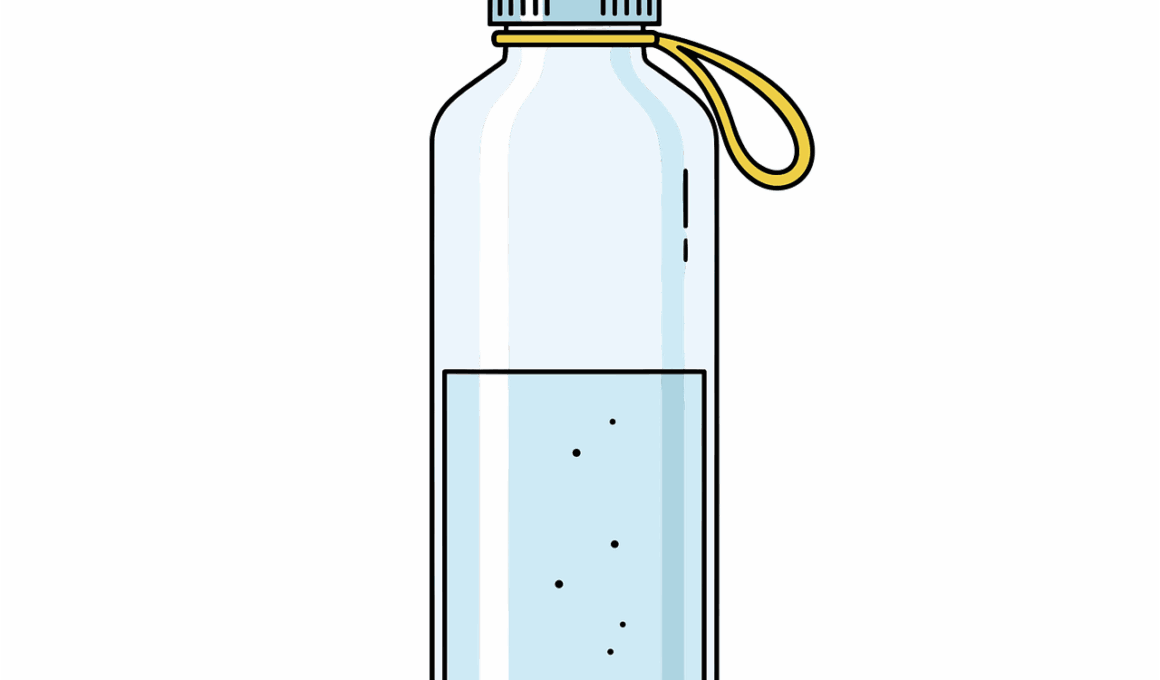Hydration and Its Effects on Sinus Health and Breathing
Proper hydration plays a significant role in maintaining optimal sinus health and breathing. When adequately hydrated, the mucus membranes within the sinus cavities remain moist, preventing the buildup of thick mucus that can obstruct airflow and cause discomfort. Drinking ample water throughout the day helps to thin the mucus, facilitating easier drainage, which is essential for overall respiratory health. Additionally, staying hydrated can help reduce the risk of sinus infections and other respiratory illnesses. Those suffering from allergies or sinusitis often find that drinking sufficient water alleviates some of their discomfort symptoms. When dehydration occurs, it could lead to less effective immune responses, making the body more vulnerable to infections. Water acts as a natural decongestant, flushing out toxins and pollutants that may exacerbate sinus issues. Hence, focusing on hydration can be a simple yet effective approach for improving air flow in the sinuses. To conclude, drinking enough water is not merely essential for hydration but vital for maintaining clear airways and proper sinus function.
Understanding the connection between hydration and respiratory health is critical for everyone. The human body is roughly comprised of 60% water, making it vital for numerous bodily functions. However, the relationship between hydration and our respiratory system is often underestimated. When the body is dehydrated, it can lead to thickened mucus production, obstructing normal breathing pathways and creating a breeding ground for infections. This thick mucus can trap allergens and irritants, complicating asthma and other respiratory conditions. To support optimal respiratory function, it is recommended to consume at least eight glasses of water daily. Adequate hydration can enhance airflow and enable healthier lung function, which is crucial for physical performance and daily activities. Aromatic steam inhalation combined with hydration can also soothe irritated airways. Moreover, foods with high water content, such as fruits and vegetables, play an essential role in maintaining hydration levels. Overall, remembering the significance of hydration can lead to a deeper understanding of how it contributes to effective breathing and airway management.
Hydration and Sinusitis Prevention
One of the primary benefits of proper hydration is its ability to prevent sinusitis. Sinusitis occurs when the sinus cavities become inflamed, often due to viral infections, allergies, or pollutants, leading to discomfort and difficulty breathing. Drinking water helps maintain the moisture balance in the sinuses, reducing inflammation and facilitating mucus drainage. Those with chronic sinusitis should prioritize hydration to manage their condition effectively. Drinking plenty of water can thin the mucus, making it less likely to block the sinus openings. Electrolyte-rich drinks can also assist in hydration without causing additional inflammation. Furthermore, avoiding dehydrating agents like caffeine and alcohol can help maintain effective hydration levels. It’s advisable to monitor your body’s responses and adjust water intake accordingly. Hot herbal teas can provide both hydration and soothing effects, further aiding sinus health. Studies have suggested that improved hydration directly correlates with enhanced sinus function, reinforcing the importance of maintaining adequate water intake for preventative care. By prioritizing hydration, individuals can minimize the frequency and severity of sinus-related issues.
Hydration’s crucial role in respiratory health extends well beyond just sinusitis prevention. For individuals with asthma or other chronic respiratory conditions, staying hydrated can significantly improve symptom management. Respiratory systems require water in the form of mucus to function optimally, as it helps trap pollutants and irritants. If the body is dehydrated, this mucus can become thick and difficult to expel, leading to increased coughing and wheezing. Liquid intake should include water and fluids, as well as broth-based soups that offer hydration with added nutrients. In addition, incorporating foods rich in vitamins and minerals alongside fluids can further bolster immune responses while assisting with hydration. Consider drinking two cups of water prior to exercise or high pollen count days, as these factors can exacerbate respiratory problems. Furthermore, optimal hydration ensures that the body can effectively manage its temperature during vigorous activities, which is necessary for those engaging in athletic endeavors. By maintaining hydration levels, individuals can enhance their respiratory performance and overall health.
Hydration and Allergies
Seasonal allergies can significantly impact sinus health and breathing. Staying hydrated is an essential strategy for managing these symptoms. Allergens such as pollen can trigger an inflammatory response in the body, leading to excess mucus production and congestion. Drinking water can help thin this mucus, easing nasal blockage and allowing for more comfortable breathing. Moreover, warm herbal teas or broths can provide additional relief and hydration, helping soothe irritated respiratory pathways. Incorporating a routine of drinking water throughout the day can maximize mucus clearance and reduce irritation. Foods high in vitamins C and E can also enhance the body’s response to allergens. Individuals should strive to optimize fluid intake during high allergen seasons. Even mild dehydration can compromise respiratory health by exacerbating allergy symptoms. Maintaining well-hydrated airways can minimize discomfort and enable individuals to engage more fully in everyday activities. Furthermore, hydration can enhance the efficacy of antihistamines, as adequate water intake ensures that medications are metabolized effectively. Consequently, hydration should be considered a preventive measure against allergy-related respiratory issues.
In conclusion, hydration is undeniably important for maintaining sinus health and breathing. Practicing proper hydration techniques can lead to a noticeable improvement in discomfort caused by any respiratory issues. Always carry a reusable water bottle as a reminder to drink water throughout the day. Consulting with healthcare professionals can help determine individual hydration needs, especially if underlying respiratory conditions exist. By assessing daily fluid intake and making adjustments when needed, individuals can promote better sinus health and overall well-being. It’s important to remember that hydration varies among individuals based on age, activity level, and overall health. Staying attuned to one’s body signals can enhance hydration efforts. When dehydration occurs, it can lead to thick mucus production, respiratory challenges, and exacerbated allergic reactions. Therefore, keeping hydration at the forefront of self-care practices is recommended to maintain optimal respiratory health. Commitment to consistent hydration can yield lasting health benefits far beyond immediate relief, reinforcing the long-term importance of balanced water intake.
Final Thoughts on Hydration
Ultimately, the effects of hydration on sinus health and breathing are profound. Water is essential for regulating bodily functions, including those related to the respiratory system. Engaging in activities that promote hydration, such as consuming fruits and vegetables or incorporating flavorful herbal teas, can make hydration enjoyable. Furthermore, being aware of the body’s fluid needs can enhance recovery from illnesses and improve overall health. Individuals experiencing chronic respiratory issues must recognize the direct correlation between hydration levels and their ability to breathe comfortably. To fully appreciate the significance of hydration, it’s beneficial to establish daily habits that prioritize water intake and balance. Tomorrow’s performance may rely heavily on today’s hydration choices, emphasizing the proactive approach towards respiratory health. Understanding hydration is not just for combatting illnesses but also for optimizing bodily functions. It helps in the long run to foster better breathing patterns and sinus health. Ultimately, committing to adequate hydration will lead to healthier respiratory systems and promote a greater quality of life.





